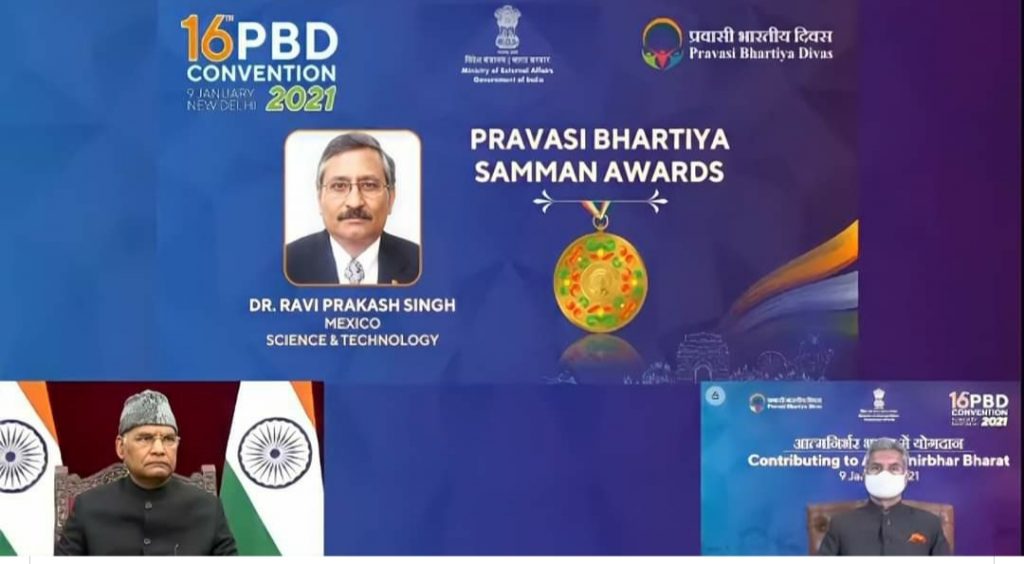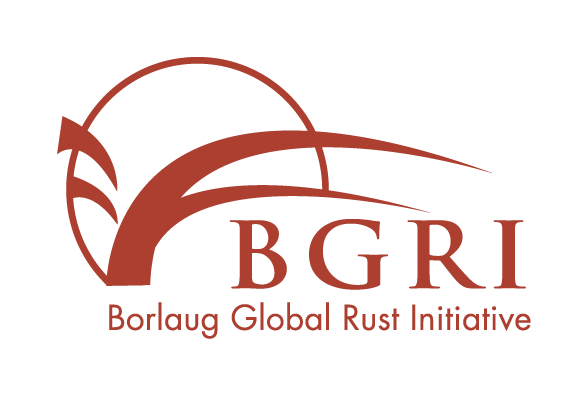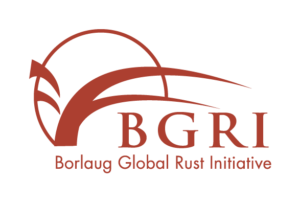Ravi Singh, distinguished scientist at the International Maize and Wheat Improvement Center (CIMMYT), has received the highest honor conferred by the Government of India to non-resident Indians.
Singh, Head of Global Wheat Improvement at CIMMYT, is a longtime partner and collaborator with the Borlaug Global Rust Initiative (BGRI). Singh was among those who gathered when Norman Borlaug sounded the alarm about the imminent danger of rust disease to the world’s wheat production and helped form the global collective that would become BGRI. He has led numerous successful projects to develop and distribute rust-resistant wheat varieties.
“Ravi Singh is one of the world’s most accomplished plant breeders and has contributed enormously to the fight to eliminate hunger throughout the world,” said Ronnie Coffman, vice chair of the BGRI and international professor in Cornell University’s Department of Global Development.
The Pravasi Bharatiya Samman Award (PBSA) recognizes outstanding achievements by non-resident Indians, persons of Indian origin, or organizations or institutions run by them either in India or abroad. Awardees are selected for their support to India’s causes and concerns by a committee led by the Vice President and the Minister of External Affairs of India. The awardees, according to the PBSA, “represent the vibrant excellence achieved by our diaspora in various fields.” The online award ceremony was held Saturday, Jan. 9 with Indian President Ram Nath Kovind as a chief guest.

India President Ram Nath Kovind (left) and Minister of External Affairs of India S. Jaishankar introduce Ravi Singh at a virtual ceremony for the Pravasi Bharatiya Samman Award. Photo: Ministry of External Affairs, India
Ravi Singh, whose career at CIMMYT spans 37 years, was recognized for his invaluable contributions to wheat research and the development and training of scientists that have increased food production and nutritional security in Mexico, India and numerous other countries of Asia, Africa and Latin America.
“The award recognizes and values many years of wheat breeding at CIMMYT, where I had the opportunity, privilege and satisfaction to have contributed and made impacts through our invaluable partners in India and many other countries,” Singh said. “By continuously providing superior varieties, we increased wheat production and incomes of millions of smallholder farming families.”
Maricelis Acevedo, director of science for the BGRI and researcher professor at Cornell’s Global Development and School of Integretive Plant Science, said that “Billions of depend on wheat for survival, and only through a coordinated global effort of dedicated scientists can we protect this essential crop against vulnerabilities to rust disease, climate change and more. Ravi Singh has been instrumental to these global efforts to breed more resilient wheat for India and other regions of the world.”
Singh’s nomination cited his contribution to the development, release and cultivation by national partners worldwide of over 550 wheat varieties over the past three decades. These national partners include the Indian Council of Agricultural Research (ICAR) and its affiliated institutions in India. These varieties, sown annually on over 40 million hectares by as many farmers, add over $1 billion USD annually to farmers’ incomes through increased productivity and built-in disease resistance, thus reducing chemical dependence to a negligible level.
“Great teamwork leads to breakthroughs — and is the only way to achieve a common goal. Dr. Ravi Singh’s work alleviating hunger is a great service to mankind,” said Gyanendra Pratap Singh, director of the ICAR Indian Institute of Wheat and Barley Research (ICAR-IIWBR). “We are proud to have him on our team.”
“This award recognizes Dr. Ravi Singh’s important contribution to CIMMYT wheat breeding, delivering major impacts to wheat production and smallholder livelihoods in India, and around the world,” said Alison Bentley, director of CIMMYT’s Global Wheat Program.
Over his career, Singh has nourished and further expanded an already strong partnership between CIMMYT, ICAR and various agricultural universities in India by developing and sharing each year new, diverse wheat varieties possessing increased grain and straw yields, resistance to diseases such as rusts, spot blotch and blast, climate resilience, and processing and nutritional quality.
Over the past decade, Singh’s team developed about half of the wheat varieties released in India through the ICAR network. These include the country’s first high-yielding biofortified varieties, WB-2 and PBW1-Zn, released in 2017 to benefit India’s zinc-deficient population.
Millions of farmers in India continue to grow CIMMYT wheat varieties or their derivatives developed by Indian institutions, to ensure safe and abundant harvests and better nutrition.
This story was adapted from the CGIAR Research Program on Wheat
Related Content
Ravi Singh – 2020 BGRI Technical Workshop
Written by:
Matt Hayes
Associate Director for Communications
Matt Hayes is a strategic communications expert and content strategist with experience in international agriculture, food security, global development and higher education. He manages all communications and marketing efforts for the Department of Global Development and a portfolio of more than two dozen programs and projects totaling $185+ million in funding.







